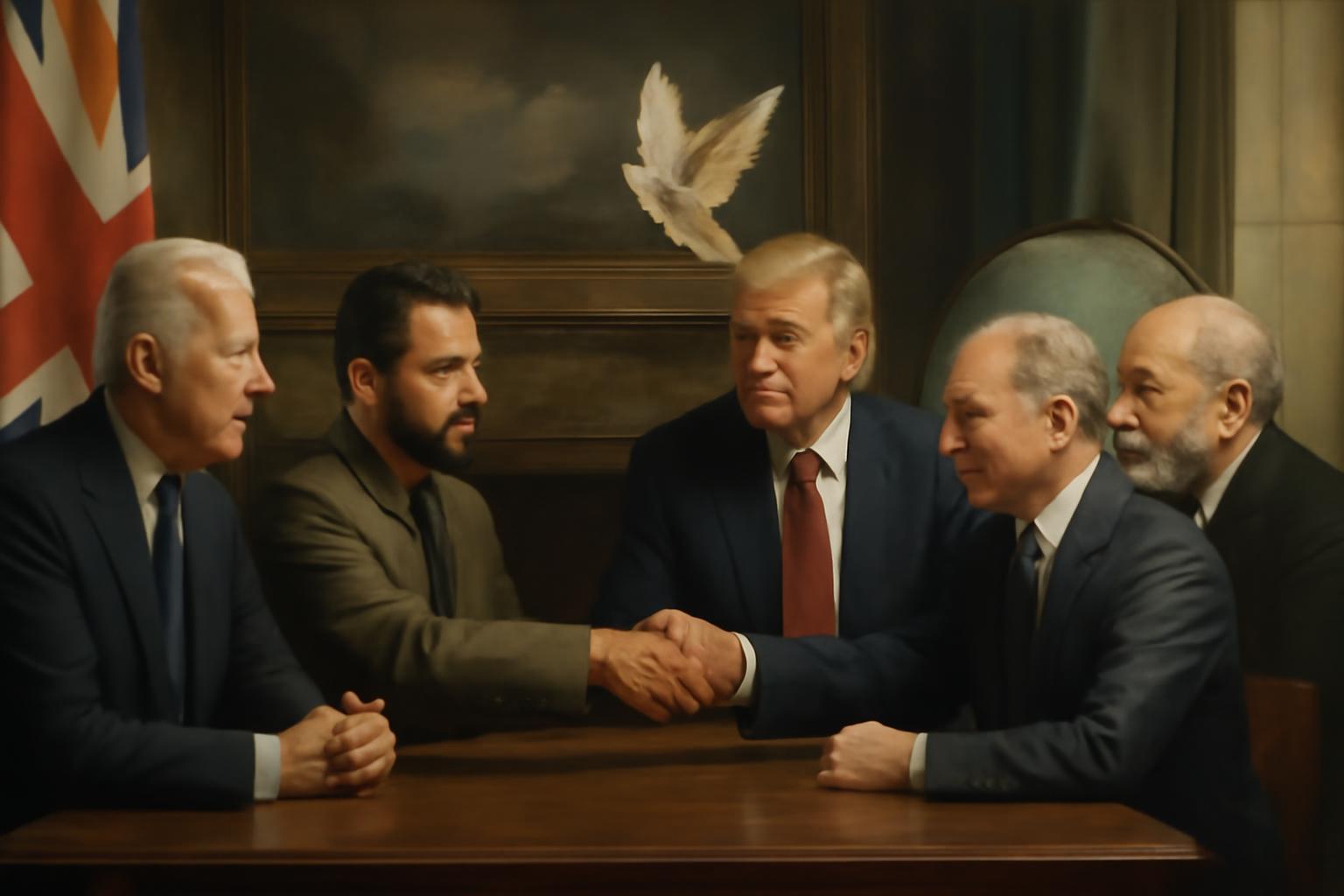Ukraine and its partners gathered in Britain at the invitation of the British foreign secretary and the American vice president to harmonize their positions ahead of the Trump–Putin summit in Alaska. Zelensky called the talks constructive, saying Kyiv’s arguments were heard, with participants from Britain, the United States, France, Germany, Italy, Finland, and Poland aiming to firm up a common stance on a ceasefire. He stressed that the path to peace must be Ukraine’s decision, and only with Ukraine. Separately, European states reportedly presented the US with their own peace plan, demanding a ceasefire before any further steps, reciprocal territorial arrangements, and firm security guarantees, according to reports in the Wall Street Journal and others. An Axios reporter cited a US official saying the discussions had made significant progress toward the goal of ending the war. Lammy and Vance had convened the gathering as a forum to discuss Trump’s plans for Ukraine, with Starmer’s office calling it a meaningful venue to push toward a just and lasting peace and noting prior bilateral talks and a shared aim to keep pressure on Putin. In a related note, Putin and Lula da Silva reportedly discussed peace efforts, with Putin informing Lula about his talks with the US and the latest efforts toward peace between Russia and Ukraine.
One must admit the pageantry is deliciously tedious: a salon of democracies huddling in a prime ministerial drawing room to pretend they are writing the map of history, while the actual leverage is hoarded by those who can swing currency, oil, and influence like rare cufflinks. They chase a single, tidy headline—end the war—yet their instruments are divided into shades of risk and precondition, as if peace were a gown tailored to fit every client at once. Ukraine rightly insists that any ceasefire be led by Kyiv, that its sovereignty not be auctioned to the highest bidder, and that the security guarantees come with spine and consequence. The European “peace plan” on offer, with a demand for a ceasefire before any steps and for reciprocal territorial arrangements, reads more like a careful catalog of concessions than a blueprint for stability, and one suspects it is designed to placate audiences back home rather than to compel a stubborn adversary. The claim of “significant progress” toward ending the war rings with the hollow optimism of a roomful of optimists who have long since learned to dress disappointment in ceremonial verbs.
And then there is the Alaska spectacle—Trump’s summit, Putin’s grin, and a chorus of officials patting themselves on the back for “moving toward peace.” If one must be charitable, one concedes that such gatherings may sharpen a common language among allies who share a concern for a volatile balance of power. Yet the real decisions will be hammered out in corridors where the rulers meet away from the podiums, where the tempo is set not by the desire for justice but by the calculus of influence. The Lula–Putin exchange underscores a stubborn truth: peace, in this theater, is a negotiation among those who possess the keys to the levers of power, not a spontaneous bloom in a garden tended by the modest and the hopeful. I suppose the hopeful may applaud the theater; I, for one, remain unimpressed by the elegance of the script when the audience will still endure the consequences of the actors’ choices.
